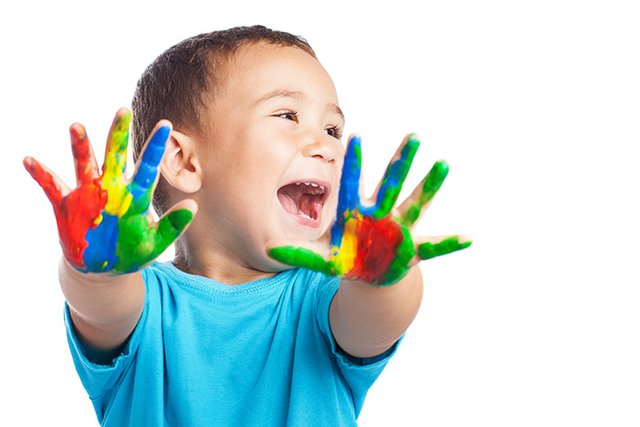
When one thinks of Psychology, one too often relates to terms such as suffering and discomfort. This is not only extremely reductive, but also incorrect.
In recent decades, in fact, attention has been paid not only to pathology, but to the concept of health, as understood by the World Health Organization. In fact, it points out that health is "the state of complete physical, mental and social well-being and not the simple absence of disease".
Health, therefore, is not just a lack of disease, but something broader. This applies to adults, but also to children. Promoting well-being in children is one of the objectives that every family and institution that revolves around the world of childhood must set itself.
What is Wellness?
When we talk about well-being, we refer to a very broad concept. Wellbeing includes physical health, living conditions, the child's social relationships, but not only. Well-being also includes mental health. Often underestimated, mental health is at the root of a global well-being condition.
It is therefore important to train and strengthen it. Early years are crucial to promote well-being in children. Almost half of the psychiatric pathologies in adulthood, in fact, started before adolescence. Working with children on resources helps them to create the luggage they bring with them all their lives to face the inevitable difficulties they will encounter.
This perspective completely reverses the focus. The attention of adults who revolve around children, therefore, also focuses on strengthening psychological resources. This is necessary in order to improve the quality of life and achieve a state of well-being at 360°.
Learning to feel good
In my work this becomes fundamental, and it is the starting point of any journey I undertake with children and their families. The objective, therefore, must be to "learn to be good", not only to "no longer feel bad", but also to improve one's own psychophysical well-being.
Through the development and strengthening of resources and skills, the goal is to achieve self-fulfilment. This applies to adults and children. We cannot limit ourselves to extinguishing the symptom, but we must work on the resources of each child, helping them to feel good.
For this reason, it is very important to work also from a preventive point of view, supporting children in the expression of their potential. In this way they will find themselves having useful tools to face the great and small sufferings of every day, but also the moments of confusion and strong ambivalence.
Promoting well-being in Children with Individual and Group Routes
There are many proposals that can be made to promote well-being in children. Depending on the situation, it is possible to propose individual courses in which you can work on the areas to develop and train. For example, you can work with children to promote good self-esteem and help them recognize and manage their emotions in a functional and constructive way.
Sometimes, on the other hand, small group meetings can be useful, where children have the opportunity to discuss specific issues and face complex situations helped by the group's resources.
Promoting well-being in children at school
The school can be a very useful environment for promoting well-being in children. I often offer courses in schools on emotional wellbeing, to help children to feel good about themselves and with others. Emotional education is a cornerstone for harmonious emotional maturation: the child who knows how to welcome his emotions will increase his confidence in exploring and experimenting around the world, enhancing his skills in adapting to the environment around him.
Knowing how to read the emotions of others also promotes an empathetic attitude towards peers, with whom it becomes easier to establish positive and authentic interpersonal relationships. Games, representations and narrations will be useful tools for learning to "listen" to emotions, recognizing them also in their manifestation on a bodily and behavioural level.
Promoting well-being in children: the role of parents
Parents play a central role in promoting well-being in children. For this reason, a path with children is always accompanied by moments of discussion and sharing with parents, which allows mum and dad to accompany them on the path of growth that they are living.
The aim of parenting support is to support parents in their difficult task, finding together strategies and suitable methods for managing complex situations.
At the same time, I like to organize informative evenings and events on different themes, to promote a culture of prevention and promotion of well-being.